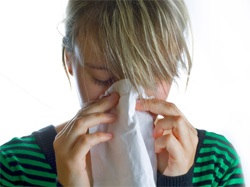
 This recent German study looks at certain immune factor levels and compares to a cohort group using Loratidine. IL-10 is well documented to be influenced by acupuncture, but this study evaluated a few other factors. Treatment is pretty much the points I use, except I don’t typically do ear acupuncture. I also don’t continue twice a week past the first 2 weeks.
This recent German study looks at certain immune factor levels and compares to a cohort group using Loratidine. IL-10 is well documented to be influenced by acupuncture, but this study evaluated a few other factors. Treatment is pretty much the points I use, except I don’t typically do ear acupuncture. I also don’t continue twice a week past the first 2 weeks.
full article here
J Allergy (Cairo). 2014;2014:654632.
The effectiveness of acupuncture compared to loratadine in patients allergic to house dust mites.
Author information
- 1Clinic of Otorhinolaryngology, Department of Medicine, University Hospital Dresden, Fetscherstraße 74, 01307 Dresden, Germany.
- 2Institute for Medical Informatics and Biometry, Department of Medicine, University Hospital Dresden, Fetscherstraße 74, 01307 Dresden, Germany.
Abstract
Background. The aim of this work was to evaluate the clinical effectiveness of acupuncture and its impact on the immune system in comparison to loratadine in the treatment of persistent allergic rhinitis caused by house dust mites. Methods. In this study, 24 patients suffering from persistent allergic rhinitis induced by house dust mites were treated either with acupuncture (n = 15) or with loratadine (n = 9). The evaluation of the data was based on the subjective and the objective rhinoconjunctivitis symptom scores, specific and total IgE, and interleukins (IL-4, IL-10, and IFN- γ ) as markers for the activity of Th1 or Th2 cells. Results. The treatments with acupuncture as well as with loratadine were considered effective in the patients’ subjective assessment, whereby the effect of the acupuncture tended to be assessed as more persistent after the end of treatment. A change in the specific or the total IgE was not detectable in either group. The interleukin profile showed the tendency of an increasing IL-10 value in the acupuncture group. The results of the study show that the effectiveness of acupuncture is comparable to that of loratadine. Conclusion. Acupuncture is a clinically effective form of therapy in the treatment of patients suffering from persistent allergic rhinitis. The results indicate the probability of an immunomodulatory effect.

